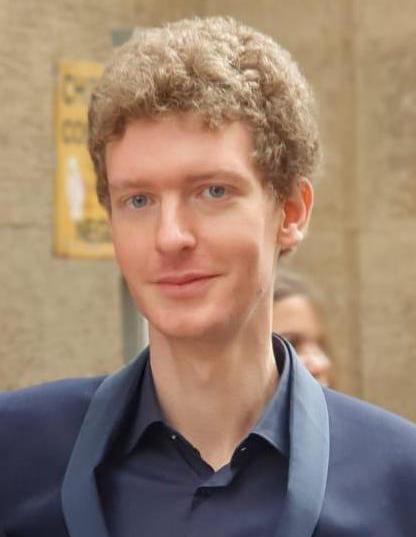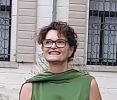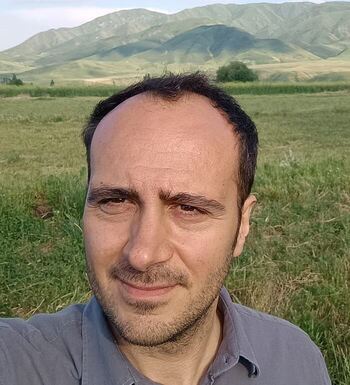Studying at the University of Verona
Here you can find information on the organisational aspects of the Programme, lecture timetables, learning activities and useful contact details for your time at the University, from enrolment to graduation.
Academic calendar
The academic calendar shows the deadlines and scheduled events that are relevant to students, teaching and technical-administrative staff of the University. Public holidays and University closures are also indicated. The academic year normally begins on 1 October each year and ends on 30 September of the following year.
Course calendar
The Academic Calendar sets out the degree programme lecture and exam timetables, as well as the relevant university closure dates..
| Period | From | To |
|---|---|---|
| semestrino IA | Oct 1, 2012 | Nov 21, 2012 |
| Semestrino IB | Nov 26, 2012 | Jan 23, 2013 |
| Semestrino IIA | Feb 25, 2013 | Apr 20, 2013 |
| Semestrino IIB | Apr 22, 2013 | Jun 7, 2013 |
| Session | From | To |
|---|---|---|
| Sessione invernale | Jan 24, 2013 | Feb 23, 2013 |
| Sessione estiva | Jun 10, 2013 | Jul 31, 2013 |
| Sessione autunnale | Sep 2, 2013 | Sep 28, 2013 |
| Sessione invernale A. A. 2012/2013 | Jan 20, 2014 | Feb 23, 2014 |
| Session | From | To |
|---|---|---|
| Sessione estiva - I appello | Jun 18, 2013 | Jun 19, 2013 |
| Sessione estiva - II appello | Jul 9, 2013 | Jul 10, 2013 |
| Sessione autunnale - I appello | Oct 15, 2013 | Oct 16, 2013 |
| Sessione autunnale - II appello | Nov 19, 2013 | Nov 20, 2013 |
| Sess. Invernale | Mar 18, 2014 | Mar 20, 2014 |
| Period | From | To |
|---|---|---|
| Festa di Ognissanti | Nov 1, 2012 | Nov 1, 2012 |
| Festa dell'Immacolata Concezione | Dec 8, 2012 | Dec 8, 2012 |
| Vacanze di Natale | Dec 21, 2012 | Jan 6, 2013 |
| Vacanze di Pasqua | Mar 29, 2013 | Apr 2, 2013 |
| Festa della Liberazione | Apr 25, 2013 | Apr 25, 2013 |
| Festa dei Lavoratori | May 1, 2013 | May 1, 2013 |
| Festa del Santo Patrono di Verona - San Zeno | May 21, 2013 | May 21, 2013 |
| Festa della Repubblica | Jun 2, 2013 | Jun 2, 2013 |
| Vacanze estive | Aug 9, 2013 | Aug 16, 2013 |
Exam calendar
Exam dates and rounds are managed by the relevant Humanistic Studies Teaching and Student Services Unit.
To view all the exam sessions available, please use the Exam dashboard on ESSE3.
If you forgot your login details or have problems logging in, please contact the relevant IT HelpDesk, or check the login details recovery web page.
Academic staff
 matteo.bonazzi@univr.it
matteo.bonazzi@univr.it
 evita.calabrese@univr.it
evita.calabrese@univr.it
 giacomo.girardi@univr.it
giacomo.girardi@univr.it
 pieralberto.porcedducilione@univr.it; pierre_pordd@yahoo.it
pieralberto.porcedducilione@univr.it; pierre_pordd@yahoo.it
 045 8028732
045 8028732
 mariarenata.zanchin@univr.it
mariarenata.zanchin@univr.it
Study Plan
The Study Plan includes all modules, teaching and learning activities that each student will need to undertake during their time at the University.
Please select your Study Plan based on your enrollment year.
1° Year
| Modules | Credits | TAF | SSD |
|---|
Un insegnamento a sceltaLingua straniera competenza linguistica liv. b1 (informatizzato)2° Year activated in the A.Y. 2013/2014
| Modules | Credits | TAF | SSD |
|---|
Un insegnamento a sceltaUn insegnamento a scelta Uno o due insegnamenti a scelta per un totale di 12 cfuUn insegnamento a scelta per un totale di 6 cfu3° Year activated in the A.Y. 2014/2015
| Modules | Credits | TAF | SSD |
|---|
Da due a quattro insegnamenti a scelta per un totale di 24 cfuUno o due insegnamenti a scelta per un totale di 12 cfu| Modules | Credits | TAF | SSD |
|---|
Un insegnamento a sceltaLingua straniera competenza linguistica liv. b1 (informatizzato)| Modules | Credits | TAF | SSD |
|---|
Un insegnamento a sceltaUn insegnamento a scelta Uno o due insegnamenti a scelta per un totale di 12 cfuUn insegnamento a scelta per un totale di 6 cfu| Modules | Credits | TAF | SSD |
|---|
Da due a quattro insegnamenti a scelta per un totale di 24 cfuUno o due insegnamenti a scelta per un totale di 12 cfu| Modules | Credits | TAF | SSD |
|---|
Legend | Type of training activity (TTA)
TAF (Type of Educational Activity) All courses and activities are classified into different types of educational activities, indicated by a letter.
Hystory of Christianity and of the Churches (2013/2014)
Teaching code
4S000024
Teacher
Coordinator
Credits
6
Also offered in courses:
- Hystory of Christianity and of the Churches of the course Bachelor’s degree in Cultural Heritage
- Hystory of Christianity and of the Churches of the course Bachelor’s degree in Humanities
Language
Italian
Scientific Disciplinary Sector (SSD)
M-STO/07 - HISTORY OF CHRISTIANITY AND OF CHURCHES
Period
Sem IB dal Nov 18, 2013 al Jan 19, 2014.
Learning outcomes
knowledge of sources and instruments of the historic-religious research, ability to analyse sources in relation with the problems of the historical-religious reseach.
Program
Prerequisites: knowledge, even elementary, of classical Latin, basic knowledge of the Medieval history from V to XV century.
Content of the course:
During the course the main institutions of the medieval church will be presented into the most general context of the Italy and European history in the Middle Age (V-XV centuries). Besides the institutional aspects, the development of the religious life and of the ideas which animated the medieval Christianity will be investigated in all their components. Object of analyses will also be the moments of the passages, of the crises and the changes, with particular reference to the first centuries of the Christianity, to the reform of the XI century, to the religious movements of the XII and XIII centuries, to the development of the Begging orders, to the crises of XIV century.
Reference books
Manuale: Storia del cristianesimo. Il Medioevo, a cura di G. Filoramo e D. Menozzi, Roma-Bari, Laterza, 1997 (pp. 5-218: G. Tabacco e di M. Gallina).
G.G. Merlo, Il cristianesimo medievale in Occidente, Roma-Bari 2012.
G. Potestà- G. Vian, Storia del cristianesimo, Il Mulino 2010.
Due saggi a scelta fra i seguenti da concordare con la docente (per i non frequentanti i saggi sono tre)
-C. La Rocca, La cristianizzazione dei barbari e la nascita dell’Europa, distribuito in formato digitale da “Reti medievali”. Sezione Rivista, V – 2004/2 (luglio-dicembre). (www.retimedievali.it). Il saggio è pubblicato ora in Il cristianesimo. Grande atlante, I: Dalle origini alle Chiese contemporanee, Torino 2006, pp. 72-89.
-M. Pellegrini, Vescovo e città. Una relazione nel Medioevo italiano (secoli II-XIV), Milano 2009.
-V. Polonio, Il monachesimo nel Medioevo italico, in G.M. Cantarella, V. Polonio, R. Rusconi, Chiesa, chiese, movimenti religiosi, Roma-Bari, Laterza, 2001, pp. 83-187.
-A. Rigon, Le istituzioni ecclesiastiche dell’Occidente medievale, Bologna 2008
-G.G. Merlo, Storia di frate Francesco e dell’ordine dei Minori, in Francesco d’Assisi e il primo secolo di storia francescana, Torino 1997, pp. 3-32.
-M.P. Alberzoni, Chiara d’Assisi e il francescanesimo femminile, in Francesco d’Assisi e il primo secolo di storia francescana, Torino 1997, pp. 203-235.
Donne e Bibbia nel medioevo (secoli XII-XV) Tra ricezione e interpretazione, a cura di A. Valerio e K.E. Börresen, Trapani 2011 (saggi concordati con la docente).
A collection of sources will be distributed during the course. The use of a historical atlas is recommended to support of the knowledges of medieval history necessary for the comprehension of the religious history.
Teaching methods: frontal lessons within a seminary context, reading and analysis of sources.
Examination Methods
oral interviews and possible written reports to be previously agreed with the teacher.
Type D and Type F activities
Modules not yet included
Career prospects
Module/Programme news
News for students
There you will find information, resources and services useful during your time at the University (Student’s exam record, your study plan on ESSE3, Distance Learning courses, university email account, office forms, administrative procedures, etc.). You can log into MyUnivr with your GIA login details: only in this way will you be able to receive notification of all the notices from your teachers and your secretariat via email and also via the Univr app.
Student mentoring
Linguistic training CLA
Gestione carriere
Practical information for students
Documents
| Title | Info File |
|---|---|
|
|
pdf, it, 325 KB, 16/07/24 |
|
|
pdf, it, 212 KB, 02/05/23 |
|
|
pdf, it, 131 KB, 02/05/23 |
Graduation
Documents
| Title | Info File |
|---|---|
|
|
pdf, it, 109 KB, 12/07/24 |
|
|
pdf, it, 112 KB, 14/05/24 |
List of thesis proposals
Stage e Tirocini
Student login and resources
Modalità e sedi di frequenza
La frequenza non è obbligatoria.
Maggiori dettagli in merito all'obbligo di frequenza vengono riportati nel Regolamento del corso di studio disponibile alla voce Regolamenti nel menu Il Corso. Anche se il regolamento non prevede un obbligo specifico, verifica le indicazioni previste dal singolo docente per ciascun insegnamento o per eventuali laboratori e/o tirocinio.
È consentita l'iscrizione a tempo parziale. Per saperne di più consulta la pagina Possibilità di iscrizione Part time.
Le sedi di svolgimento delle lezioni e degli esami sono le seguenti
- Polo Zanotto (vicino si trova il Palazzo di Lettere)
- Palazzo ex Economia
- Polo Santa Marta
- Istituto ex Orsoline
- Palazzo Zorzi (Lungadige Porta Vittoria, 17 - 37129 Verona)
- Chiostro Santa Maria delle Vittorie, Lungadige Porta Vittoria, 41





































